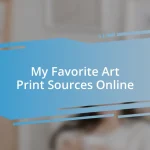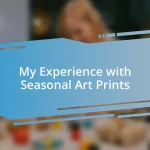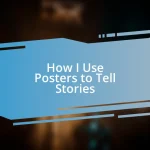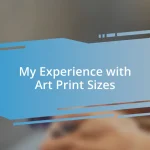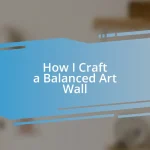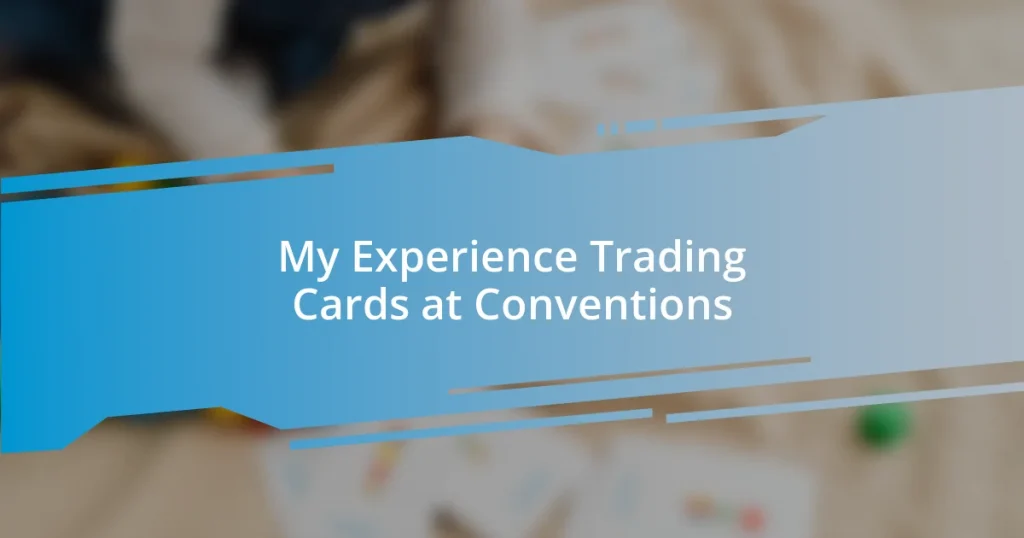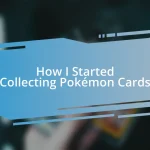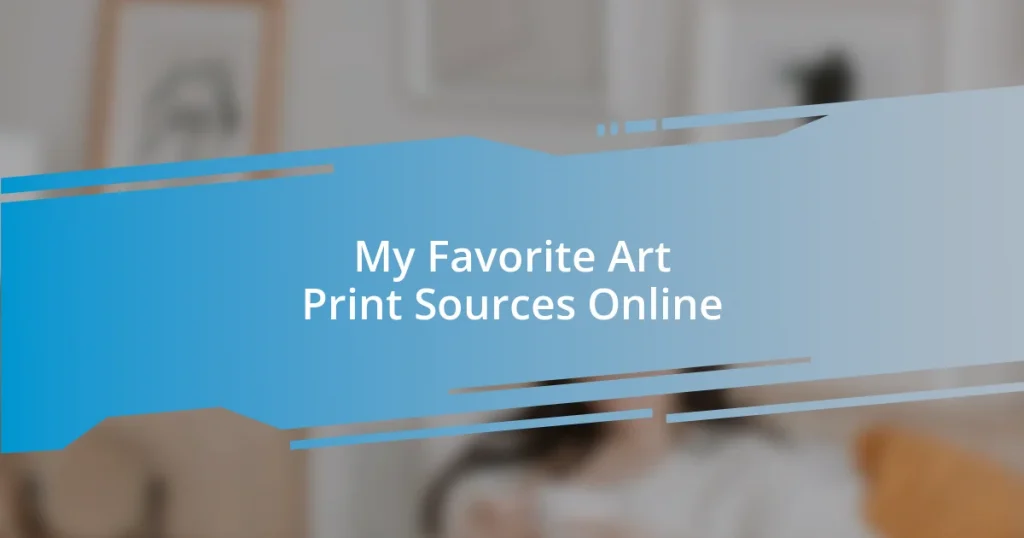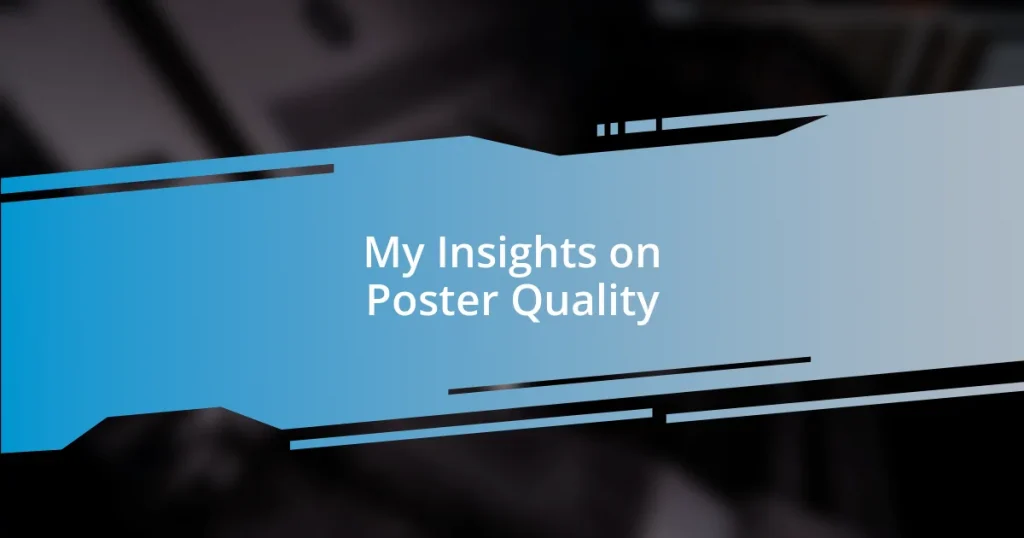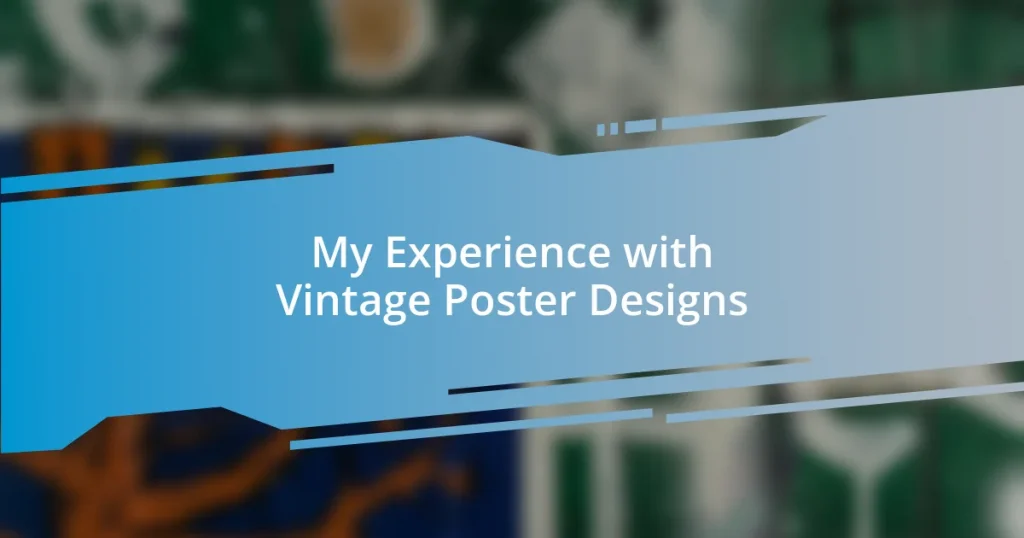Key takeaways:
- Trading card conventions foster a vibrant community, providing opportunities for networking, trading, and shared experiences among collectors.
- Preparation is vital: research the event, create checklists, set budgets, and bring supplies to maximize the convention experience.
- Successful negotiations blend assertiveness and empathy, with an emphasis on patience and thorough market research to secure favorable trades.
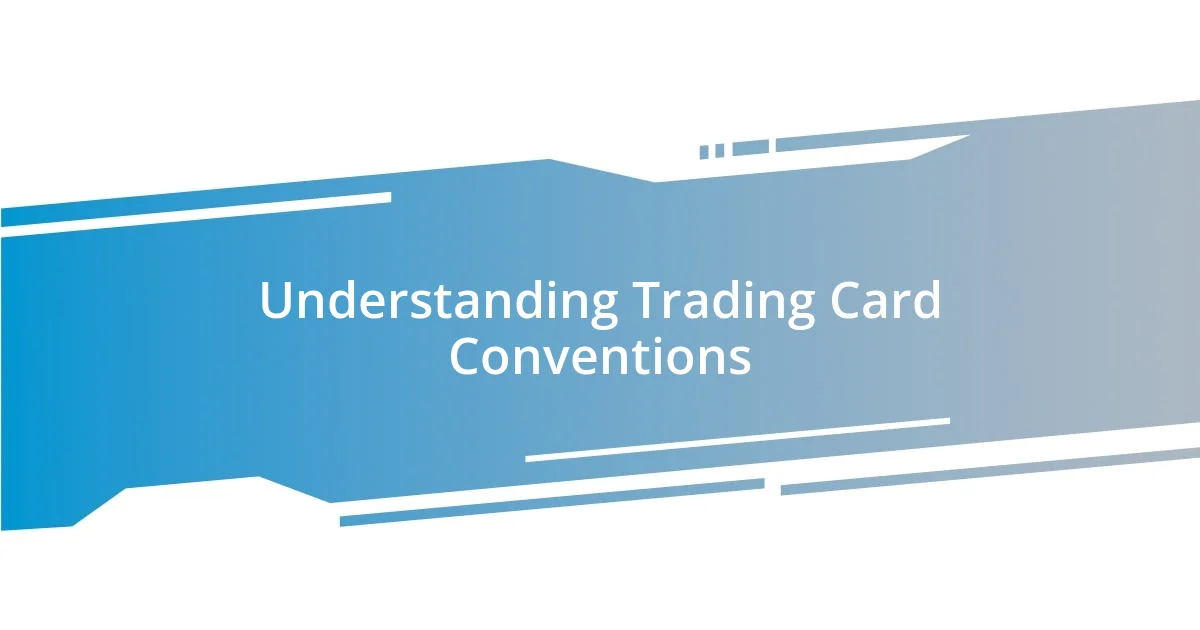
Understanding Trading Card Conventions
Trading card conventions are a vibrant tapestry woven from the passions of collectors, players, and enthusiasts alike. When I first attended one, I was struck by the sheer energy in the room; it felt as if every corner held a new story waiting to be discovered. Have you ever walked into a space where you instantly knew you belonged? That’s the magic of these events.
At conventions, you can find everything from rare collectibles to the latest game releases, creating an unparalleled atmosphere for trading and networking. I recall a moment when I traded a card I’d cherished for years and ended up walking away with a hidden gem I never knew I wanted. How exhilarating is that rush of negotiation and discovery? It’s not just about the cards; it’s about the connections you forge along the way.
The sense of community at trading card conventions is palpable. You meet people who share your interests, drawing you closer together as you swap stories and tips. I still remember bonding with a fellow trader over childhood memories tied to specific cards, which deepened my appreciation for the hobby. These conventions aren’t just events; they’re a celebration of our shared enthusiasm, and they remind us of the joy these cards bring to our lives.
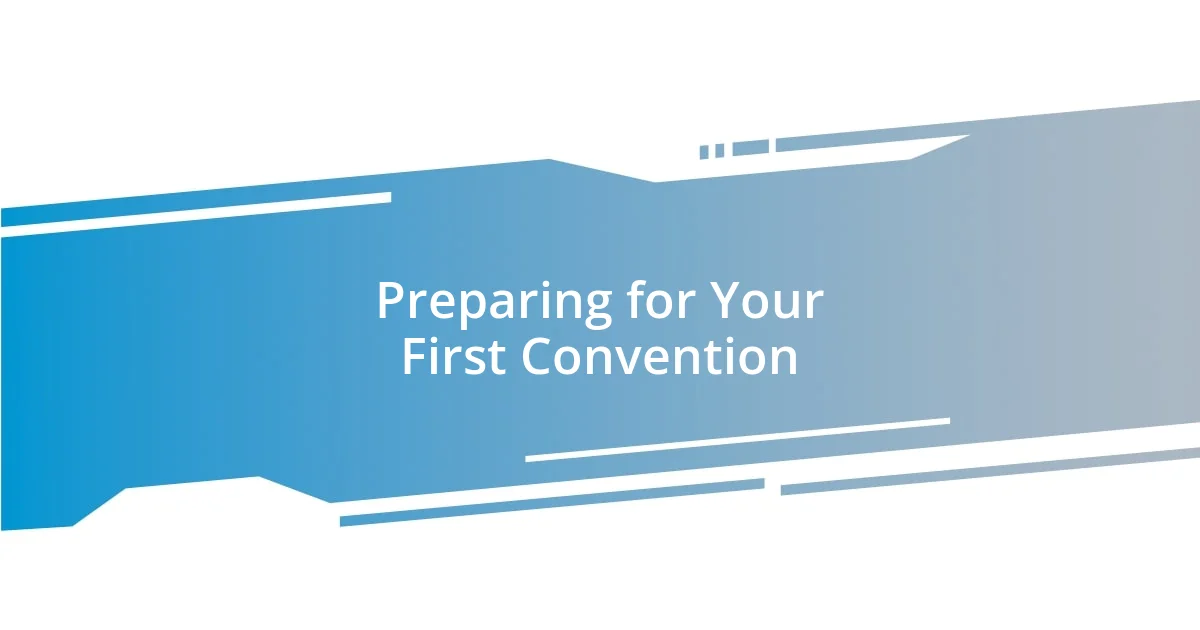
Preparing for Your First Convention
Preparing for your first trading card convention can be both exciting and a bit nerve-wracking. I remember my initial experience vividly—the rush of anticipation tinged with butterflies in my stomach. To make the most of your time there, I recommend getting organized well ahead of the event. It’s all about setting yourself up for success!
Here are some essential tips to consider:
- Research the event: Check the guest list, exhibitors, and schedule. Knowing who will be there can help you plan your networking.
- Create a checklist: Include cards you want to trade, items you wish to buy, and any specific workshops you don’t want to miss.
- Set a budget: Be clear on how much you’re willing to spend. Trust me, it’s easy to get carried away in the excitement.
- Bring supplies: Don’t forget card sleeves, protective boxes, and a comfortable bag to carry your goodies.
- Stay hydrated and nourished: It’s easy to lose track of time. Pack snacks and a water bottle to keep your energy up!
Before you head out, gather your cards and reflect on why you’re excited about trading. I still smile when I think of the first card I aimed to trade—it wasn’t just a piece of cardboard; it held memories. Connecting those sentiments with your trading goals can heighten your experience at the convention.
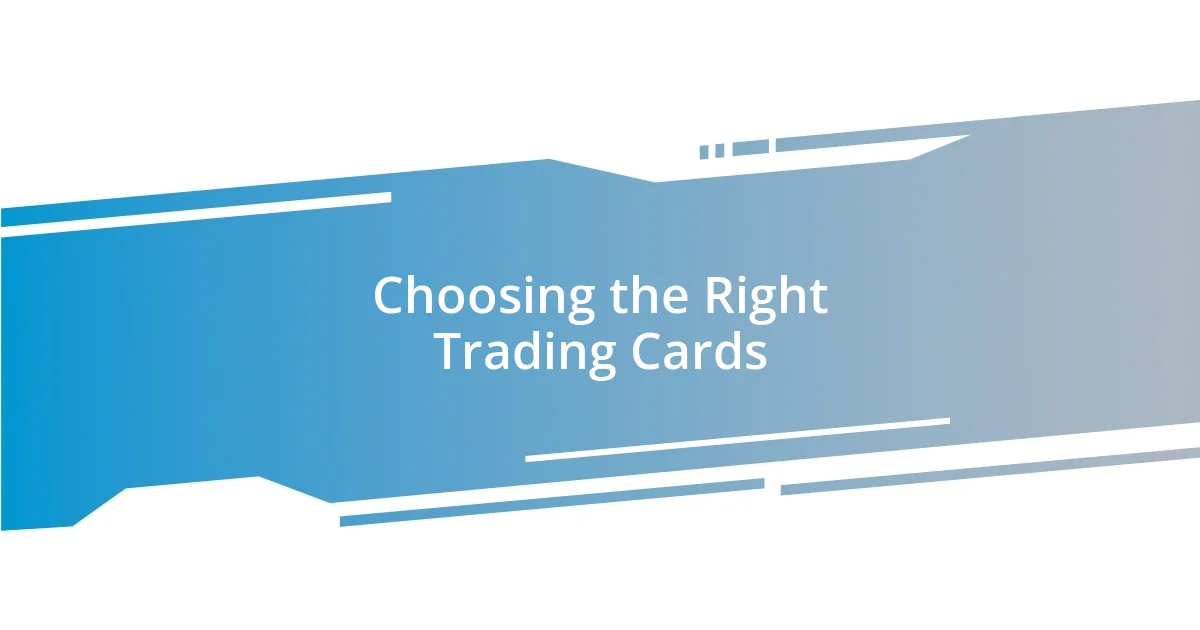
Choosing the Right Trading Cards
Choosing the right trading cards for conventions requires a mix of strategy and passion. From my experience, it’s crucial to focus on both personal favorites and market trends. For instance, I recall trying to decide between a card that sparked fond memories and one that had significant trade value. In the end, I chose the card with the story behind it—a decision that brought a smile to my face every time I looked at it.
When it comes to selection, consider the rarity, demand, and condition of the cards. I remember a fellow collector who made an amazing trade by doing his homework. He had researched prices and identified cards that were undervalued. His insight transformed an average deal into a fantastic one. This kind of preparation can elevate your experience at the convention and ensure a successful trading journey.
It’s also helpful to think about how your collection fits within the broader trading community. Personally, I find it beneficial to assess what cards other collectors are actively pursuing. I once attended a convention and noticed a surge of interest in certain vintage cards. This moment inspired me to reevaluate my own collection, leading to trades that surprised even me. Engaging with the community gives you valuable insight and can enhance your overall experience.
| Card Feature | Importance |
|---|---|
| Rarity | High – Increases value and desirability |
| Condition | Essential – Affects price and trading potential |
| Market Demand | High – Aligns with collector interests |
| Personal Value | Important – Adds emotional connection to your collection |
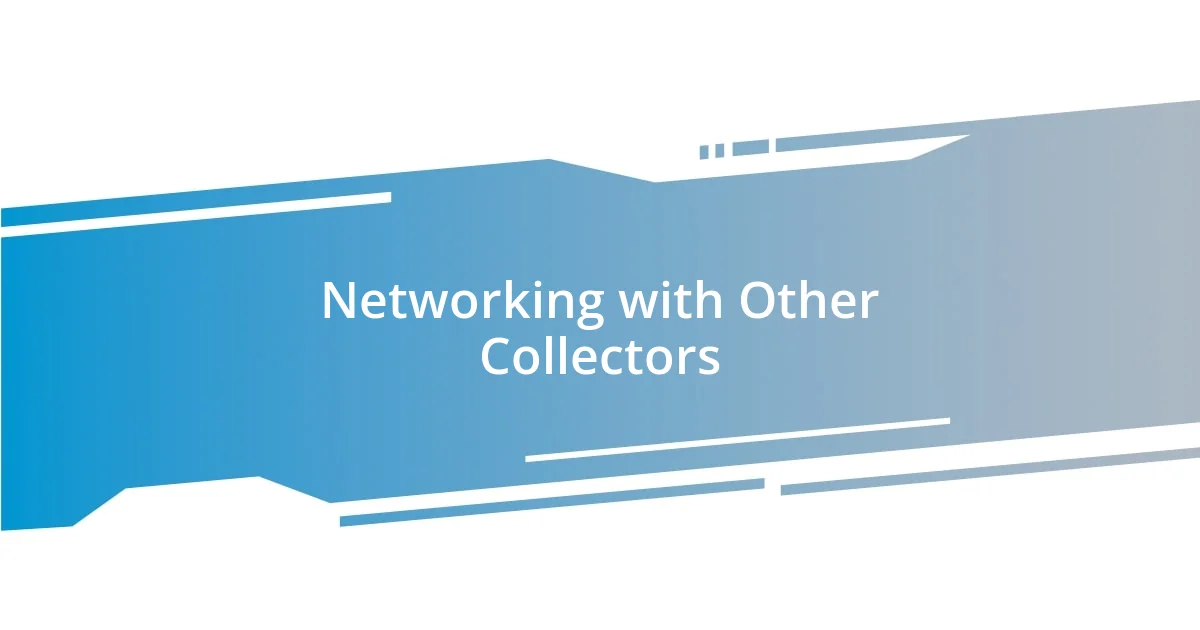
Networking with Other Collectors
When I think about networking at conventions, I remember how my first encounter with other collectors changed my entire perspective. I struck up conversations with people I’d only seen online, and suddenly, the virtual world transformed into real relationships. Have you ever felt that electric connection when discussing a shared passion? I certainly did, and it made the experience all the more rewarding.
One of the best moments came when I was trading cards and ended up joining a small group of collectors around a table. We exchanged stories, strategies, and even some insider tips about upcoming releases. It’s fascinating how sharing experiences can fuel your knowledge base. I learned about unique cards I’d never considered—were they already on my radar? No, but that conversation sparked an interest I couldn’t shake.
I’ve also found that exchanging contact information can lead to lasting friendships. After one convention, I created a group chat with some of the collectors I met, and we’ve since continued to share insights and trade cards online. It’s a fantastic feeling to have that ongoing connection. How cool is it to know you’re part of a broader community where everyone is just as passionate as you?
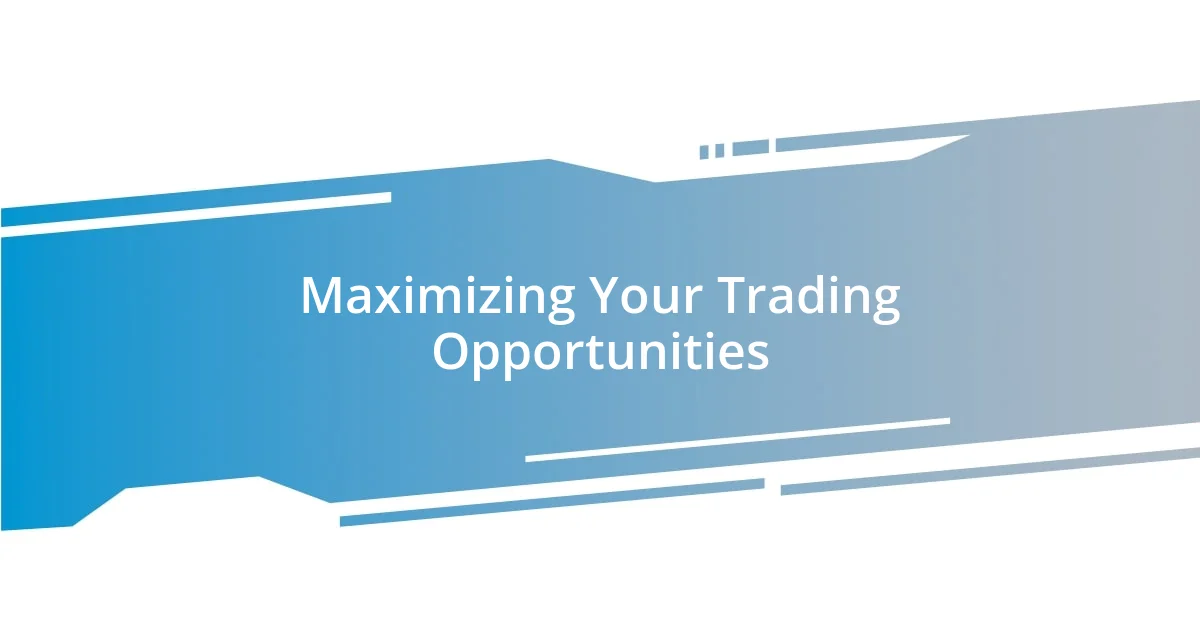
Maximizing Your Trading Opportunities
Maximizing your trading opportunities can often feel like a puzzle, but I’ve discovered a few effective strategies that can simplify the process. For example, during my most recent convention, I made a point to arrive early. This allowed me to scope out the venue, build rapport with vendors before the crowd arrived, and even get the first pick on some undervalued cards. Have you ever experienced that rush of adrenaline when you find a gem before anyone else does? It’s exhilarating!
Connecting with other collectors to share insights is another fantastic way to enhance your trading experience. One memorable moment was when a fellow enthusiast spotted a rare card in my collection and offered a trade. We spent an hour discussing our collections and exchanging tips on navigating the market; it felt like a game of chess where both players knew the stakes. I remember leaving that meeting not just with a new card but with fresh perspectives and inspiration to refine my own trading strategy.
Lastly, being open and flexible during trades can lead to unexpected opportunities. I once set my sights on trading for a specific card, but during negotiations, I noticed the excitement in another collector’s eyes for a card of mine I hadn’t considered parting with. The moment I let go of my initial plan and embraced the possibility of this new trade, I found not only a new addition to my collection but also formed a camaraderie with that collector. Isn’t it fascinating how one small change in your approach can open doors to unforeseen treasures?
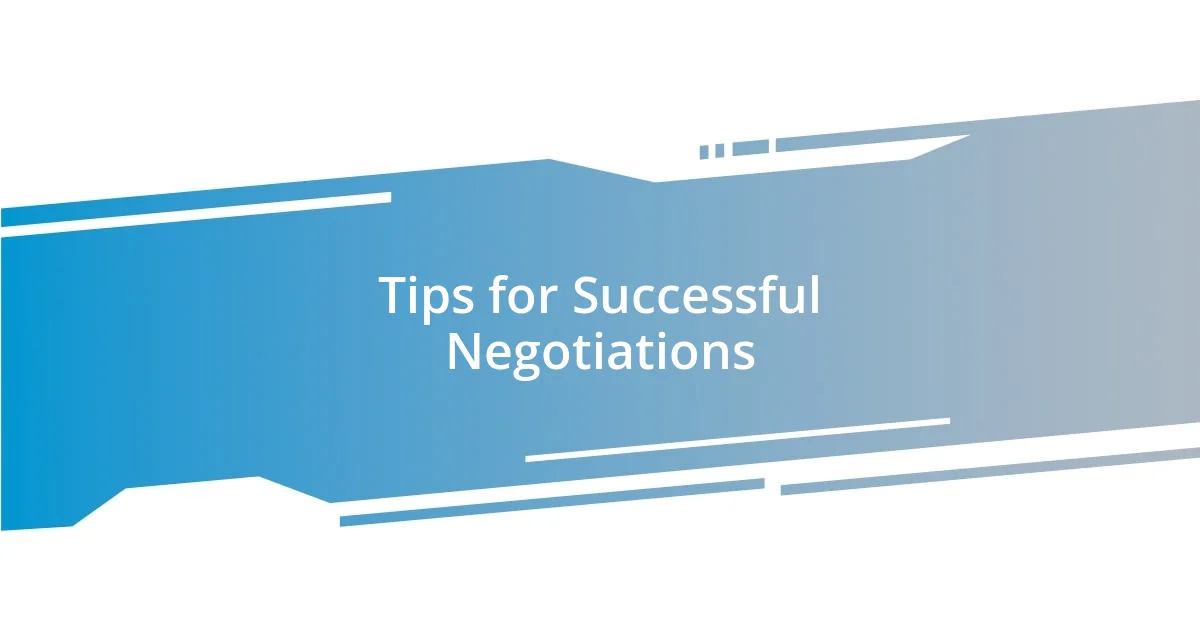
Tips for Successful Negotiations
Successful negotiations hinge on understanding the balance between assertiveness and empathy. Early in my trading journey, I negotiated for a sought-after card that held sentimental value to me. As I sat across from the seller, I recognized his fondness for the card as well. By actively listening and expressing my appreciation for its significance, we found common ground, and I ultimately landed the card. Have you ever realized that connecting on a personal level can shift the dynamics of a deal?
Additionally, embracing the art of patience can yield unexpected rewards. I vividly remember a day at the convention when I hesitated before making an offer. Instead of diving straight into the deal, I took a moment to assess the seller’s reactions and body language. As it turned out, he was open to negotiations but needed some time to mull it over. That extra pause led to an offer that benefited us both, which I might have missed had I rushed in. Isn’t it amazing how a little patience can transform a transaction into a collaborative exchange?
Lastly, don’t underestimate the power of preparation. Prior to each convention, I research current market trends and value ranges for the cards I’m interested in. I often carry a list of key cards and their estimated values, which not only boosts my confidence during negotiations but also empowers me to make informed offers. I recall a time when this prep work allowed me to spot a great deal. By knowing the value upfront, I confidently approached the negotiation table and secured a rare card well below its market price. How do you prepare to ensure you’re getting the best possible deals?
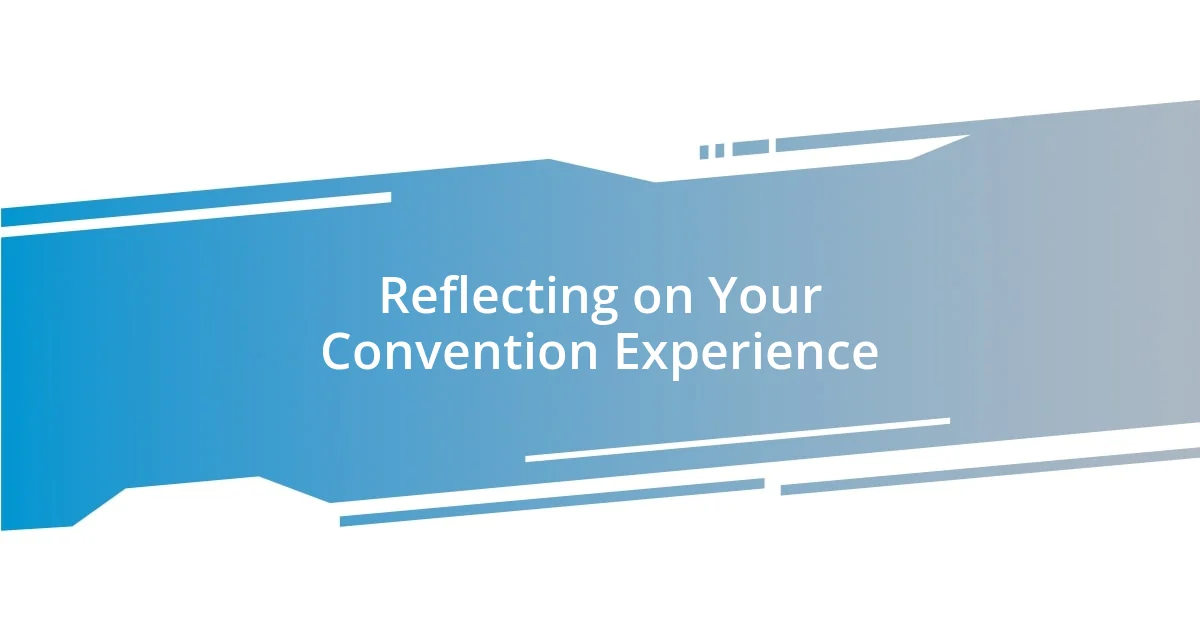
Reflecting on Your Convention Experience
Reflecting on my convention experiences often reveals a treasure trove of lessons beyond the trades themselves. I remember walking through the energetic aisles, feeling the hum of excitement around me, and realizing that each friendly face represented a shared passion. It’s a reminder that these conventions are more than just places to trade cards; they’re gatherings of like-minded individuals who inspire one another. Have you ever felt that sense of community when connecting with fellow enthusiasts?
In hindsight, I can see how much my expectations shaped my experiences. There was a time when I approached a convention with a singular focus on acquiring specific cards, only to find that my best interactions came from spontaneous conversations with fellow collectors. I still chuckle when I think about the unexpected trades I made after chatting with someone over a shared love for a particular series. How liberating it can be to shift your mindset from just trading to truly connecting!
Lastly, I often ponder the emotional journey these conventions have taken me on. Each interaction, whether it ended in a trade or a missed opportunity, has contributed to my growth as a collector. I learned to appreciate the stories that cards carry, which allows for deeper connections. Have you ever walked away from a negotiation feeling more enriched by the conversation than the card itself? That’s a powerful reminder that sometimes it’s not just about the cards, but the relationships we build along the way.

